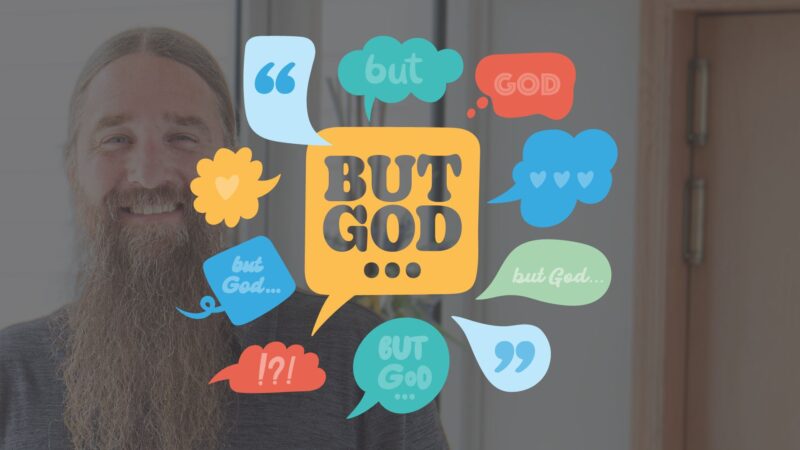“Those in recovery understand grace uniquely, because they were truly lost. They understand what grace costs, what God saved them from, because the depth of hell was a reality for them in everyday life — not the spiritual hell we think about, but certainly the closest thing we can experience when we think of earth.”
Pastor Billy Robel’s insight on recovery emerges from his experience leading Recovery Church in Sunbury, Pennsylvania, but also from his own story of recovery.
“I came out of drug and alcohol addiction as an adolescent,” Billy says. “I got clean around the age of 18 and connected to Christ Wesleyan Church. I felt a call to ministry, and they sent me to Indiana Wesleyan.” But after college, Billy relapsed. “I went back on crack and heroin. My wife — who (felt called to be a) missionary — ended up in that world, too. I felt more hardened against God at that point than I did before I even came to Christ.”
But God called Billy back. After years of walking away from the Lord, Billy finally had a rock bottom moment and decided to get clean again. Soon after detoxing from drugs, he attended a Christian concert at his church. It was there that he had a moment of clarity, as God pressed in on his heart. “There was this repentance moment. I just really came back to the Lord.”
As Billy returned to Christ Wesleyan and began rebuilding his life, getting free of his own addiction, he noticed something. People in recovery were still hungry for God but didn’t have a clear place to go. Alcoholics Anonymous meetings were everywhere. Churches were, too. But there wasn’t a space where the gospel was preached in the voice of recovery, nor were churches always the easiest places for those in the raw throes of recovery to share their longings and losses. Churches don’t always have expertise in recovery.
“How do I get my friends to come to church?” asked Billy. “I used to bring them, but they didn’t fit. And I don’t think the church was equipped to help.”
So, Billy pitched a new vision: a church within the church — a worship service where the music, message and people understand the story of addiction, because they’ve lived it. “We wanted people to hear sermons around the bondage of sin. We wanted people to sing songs about breaking free and finding freedom in Christ.”
That vision came to life when Billy discovered the Recovery Church Movement, a network based out of Jupiter, Florida. Its leaders were pastors and people in recovery who had been dreaming the same dreams Billy had.
He joined their ranks.
Today, Recovery Church Sunbury is four years in thanks to Pastor Branden Mestach and the people of Christ Wesleyan Church. Every week, the Recovery Church welcomes people who are walking out of addiction, stepping out of jail, leaving the darkness behind. Hundreds have come to Christ. About 300 have been baptized. Many have found both sobriety and spiritual maturity as they give their life to Christ with the support of others.
“We’ve trained people who now lead worship, run sound, disciple new believers,” Billy says. “Some are becoming pastors. Others are mentoring. It’s incredible to see.”
Billy serves as the campus pastor for Christ Wesleyan’s Sunday congregation in Sunbury and leads the Recovery Church services. The two gatherings strengthen one another. Discipleship ministries, mentorship pathways and spiritual formation groups help those new to faith keep growing. “They come to Recovery Church saying, ‘I need help.’ But then they say, ‘I want more.’ So, we say, come back Sunday. Let’s keep going.”
That transformation movement is contagious. Even those without an addiction background have found purpose alongside Recovery Church. Billy points to Charles Kim, a professor at Bucknell University.
“When we started the ministry, Charles and his wife said, ‘We just want to be where broken people know they need Jesus.’ Four years later, Charles is one of our top disciplers. He’d tell you he’s found freedom too.”
The ministry has also sparked growth. Christ Wesleyan Church Sunbury, a campus of Christ Wesleyan Church Milton, has outgrown its facility and is now renovating an old car dealership in the city center. The new building will seat 400-500 and serve as home for both Friday recovery services and Sunday worship.
Billy has helped train other Recovery Church teams across the Northeast District of The Wesleyan Church. So far, there are nine Recovery Church campuses and several more in development. Billy sees it as a chance to awaken churches to a mission field right in front of them.
“The harvest is plentiful,” he says. “And people in recovery know what they’ve been saved from. They lived in darkness. Now, they’re in the light. That kind of grace changes you.”
For more information about how to cultivate a recovery-responsive church, reach out to Pastor Billy Robel at billy.robel@cwc.life.
Rev. Ethan Linder is the pastor of discipleship at College Wesleyan Church in Marion, Indiana, and contributing editor at The Wesleyan Church’s Education and Clergy Development Division.

